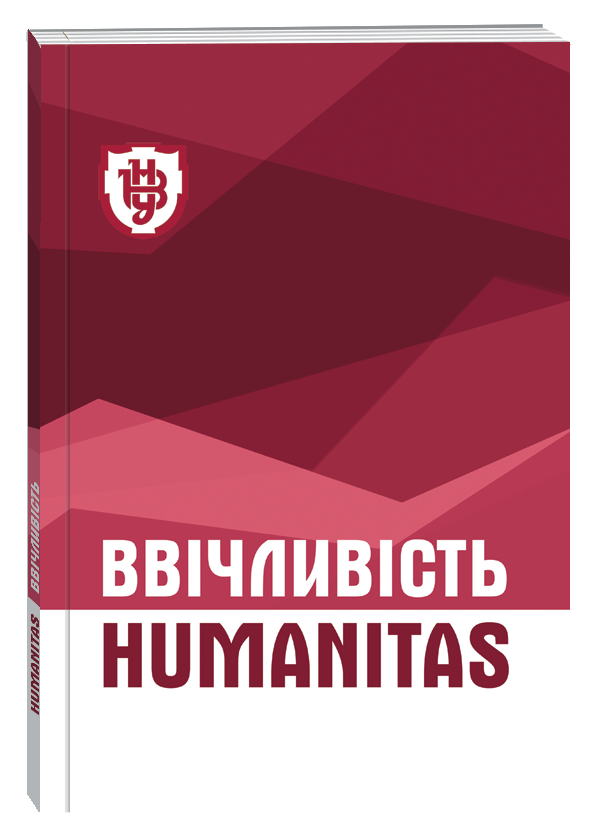THE PROBLEM OF THE PRECARYATE POPULATION OF THE POST-WAR PERIOD OF UKRAINE AND UNCONDITIONAL BASIC INCOME AS A SOCIAL NECESSITY FOR ITS SOLUTION
DOI:
https://doi.org/10.32782/humanitas/2023.1.5Keywords:
social security, precariat, social inequality, poverty, unemployment, unconditional basic income, income of citizens, social transfers, automation of production.Abstract
The article analyzes the trends of social problems of post-war Ukraine, focuses on the problems of the precariat population, aspects of the introduction of an unconditional basic income. The advantages and disadvantages of the concept of unconditional basic income (UBI) as an integral part of the social policy of equalization and improvement of the quality of life of the post-war recovery period of Ukraine are analyzed. The analysis of modern systems of social support of the population is based on the principle of an individual approach to assessing the needs of citizens and, accordingly, differentiating the amount of payments in accordance with this principle. The postwar period justifies the expediency and alternative concept without conditional basic income as a universal tool of social security and protection of the majority of the population, which will allow to avoid discrimination in the provision of assistance based on age, gender, social and other factors, the concept of unconditional basic income has a universal nature of assistance, which is of primary importance in the war and post-war periods of stabilization and restoration of the country and social trends in society. It is noted that interest in the concept of an unconditional basic income is definitely growing, against the background of the current socio-economic uncertainty caused by hostilities, when social problems are particularly clear, and society is increasingly actively requesting changes. At the same time, there is still no full-fledged experience of the transition to basic income. All pilot programs (more than 40 in total) either did not meet the five basic income criteria (periodicity, individuality, universality, unconditionality and monetary nature of payments) or were too small to provide at least a minimum standard of living for the recipients. Conclusions and suggestions are made regarding the possibilities and expediency of the introduction of BBD in Ukraine in the post-war period in the conditions of the problem of the precariat population and emigration processes and internal migration.
References
Стендинг Гай. Прекариат: новый опасный класс. Москва : Ад Маргинем Пресс, 2014. 328 с.
Фюльзак Манфред. Утопический перфекционизм. Размышления на тему основного дохода в глобализированном мире/ Йорг Дрешер Идея освобождающего безусловного основного дохода. 2007.
Пищуліна О. Економічна модель «безумовного базового доходу»: нова соціальна альтернатива. Український центр економічних та політичних досліджень ім. О. Разумкова. URL: http:// razumkov.org.ua/upload/1456388199_ file.pdf (дата звернення: 10.03.2023).
Ідея звільняючого безумовного основного доходу. URL: http://www.iovialis.org/download/BGE-Buch_ukr.pdf (дата звернення: 10.03.2023).
Манн М. Конец, может, и близок, только для кого? // Есть ли будущее у капитализма? Москва : Изд-во Ин-та Гайдара, 2013.С. 113–154 .
Crouch С. Will the gig economy prevail? Cambridge, UK - Medford, MA: Polity Press, 2019.
Jurgen De Wispelaere, Lindsay Stirton The Many Faces of Universal Basic Income. URL: https://doi.org/10.1111/ j.1467-923X.2004.00611.x. (дата звернення : 10.03.2023).
Длугопольський О. В., Длугопольська Т. І. Концепція безумовного базового доходу як альтернатива Бісмарківській моделі держави добробуту: від теоретичних студій до експериментальних практик. Економіка: реалії часу. Науковий журнал. 2017. № 2(30). С. 32-46.
Клевчік Л. Л. Соціальна нерівність як основна диспропорція в суспільстві. Економіка та держава: науково-практичний журнал. 2019. № 4. С.48-51.
Корчинська О. О. Безумовний базовий дохід як інструмент управління бідністю. Інтелект XXI. 2018. № 2. С. 98-101.







